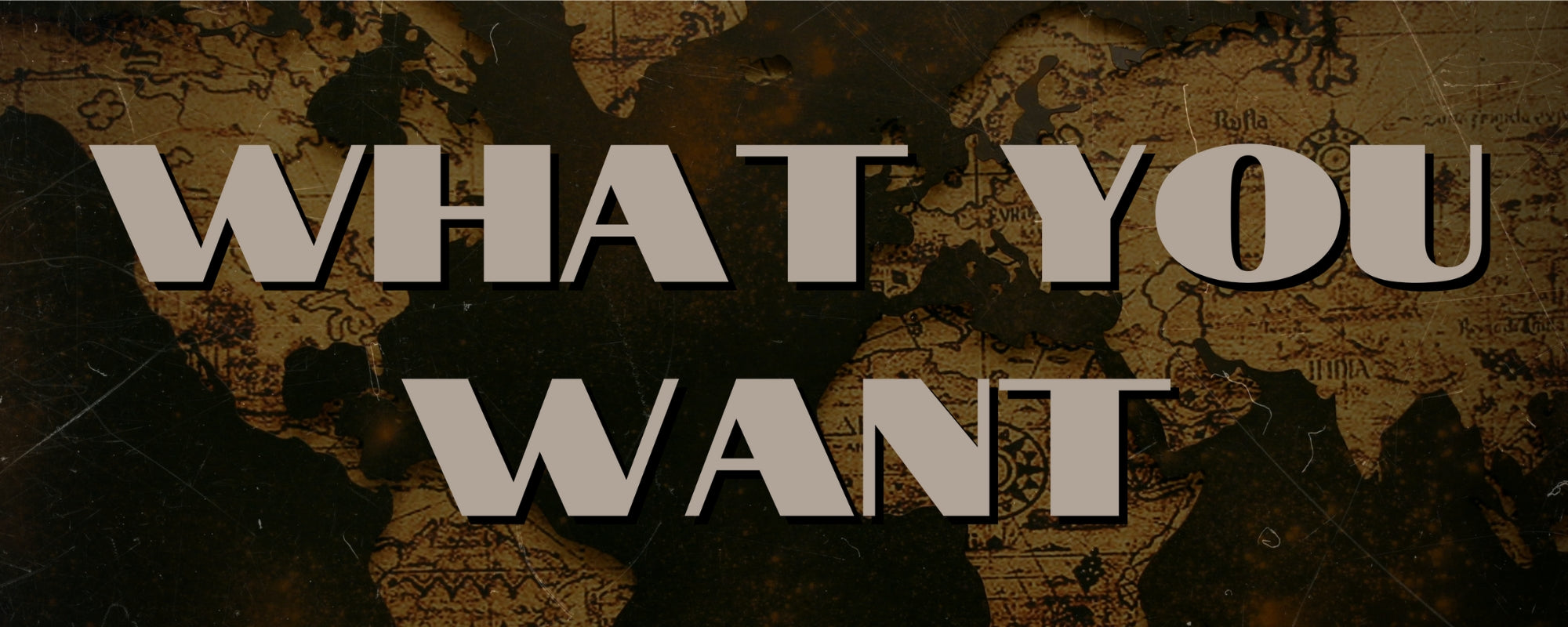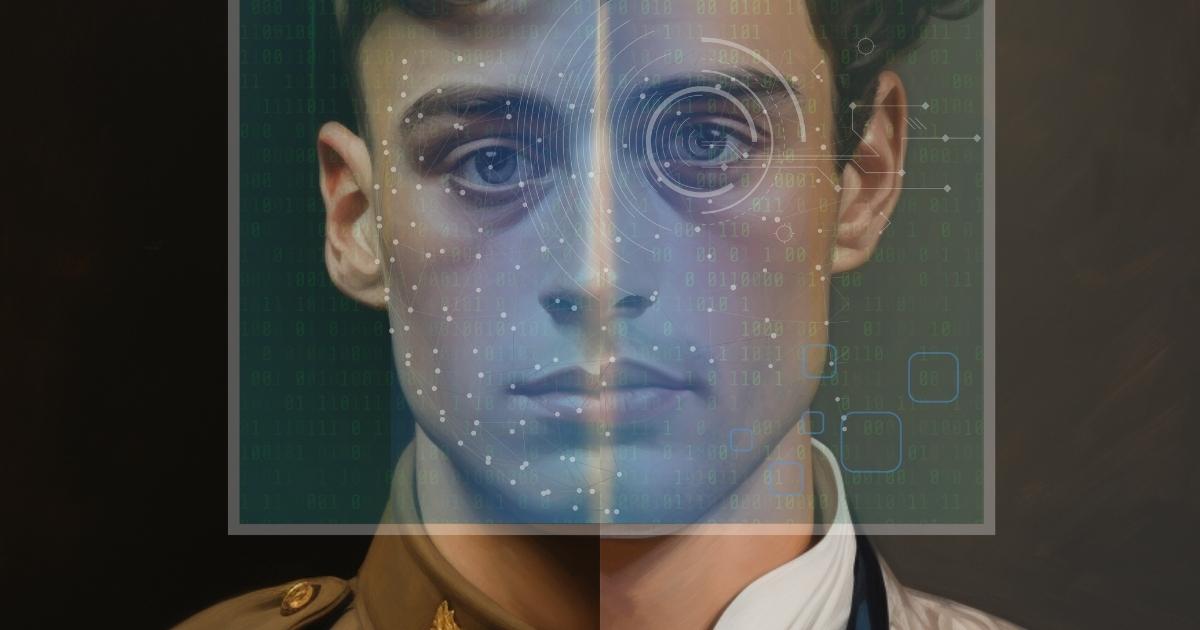

What You Want
By Michael A. Clark
It’s boring being rich.
Maybe that’s why I’m slogging through mud towards the S.P.A.D. idling on a cold, wet French airfield, long before NATO, Brexit, and COVID-19.
It’ll give my parents something to talk about with their friends.
If I come back.
I’ll find out soon enough. If I survive.
Distant Dad was on his third trophy wife and none the happier. Mom was entertaining herself with pharmaceuticals and the Perth-berthed yacht’s first mate. Money was never an issue with our so-called family.
If you wanted something, you got it.
Figuring out what to want was the problem.
And families are just people to whom you’re related.
I shout “Copaze,” and the ground crew yanks the parking chocks away from the S.P.A.D.’s spindly tires as I pull the throttle out while adjusting my goggles.
The wind picks up as I urge the fighter forward, bumping along over the uneven grass airstrip in tune with the engine’s roar. In a moment I’m aloft, with that delicious fear and adrenaline leaving the Earth always gives.
That still excites me.
I didn’t understand the time process that sent me back to 1916. Eggheads thought this stuff up, and we the offspring of the 0.1 percent reaped the benefits.
Like we got everything we were entitled to.
I rev the Hispano-Sauza engine and pull the S.P.A.D. into a gentle banking climb against a 10-knot wind. There’s a thin row of light blue/gray clouds at about six thousand feet a mile or so to the north, but other than that, it’s a pristine blue-sky day.
A good day to die.
My dad would say that sometimes—“a good day to die”—when tipsy at the functions where his underlings came supplicating. He was just quoting an old movie, but the corporate lemmings would nod and murmur amongst themselves for the best way to work that into Monday morning’s financial presentation.
I’m at about three thousand feet now. The leather jacket that had me sweating before now wards off the altitude’s chill. I check my gauges and then work the actions on my machine guns. A round is in each chamber, ready to go.
Mom tried caring, sometimes.
I got that. I’d say, “Thanks, Mom.”
And she would look both pleased and confused, then darken again.
Families are just people related to each other.
Aren’t they?
Five thousand feet now and crossing the front lines. Tiny mazes like LSD-drugged ant farms below, ditches of men cringing in the mud before the bored gods of war. I’m above them all, a harsh dream heading to imagined glory.
If I come back.
I sigh a sigh, lost in the wind.
Waving his left arm, my wingman catches my eye.
I look east and see several gnats buzzing around a sausage hanging in the sky. It’s an observation balloon, telegraphing reports on enemy troop movements and artillery emplacements back to their headquarters.
A prime target… but deadly. Those gnats were German fighters in a protective orbit around the lumpen gas bag.
I waggle my wings and then roll right towards the enemy. My wingman follows.
I had a friend who thirsted for adventure more primitive than World War I dogfights. Sabrina wanted to go ape, literally. Her parents didn’t fully understand how depositing a twenty-first century debutante into Oldauvi Gorge, circa 2.5 million years ago might go wrong.
But it did.
When our class loses someone, you are expected to mourn.
Few of us know how, but…
We’ve learned to fake it.
I pull the throttle out and lean right in the cockpit, my feet kicking the stubborn pedals. The canvas that covers the wood spars of the S.P.A.D.’s wings rustles like forest leaves in a thunderstorm. I hear the creaking of the struts holding the biplane’s wings together, piano wire singing in the chill air.
This is what it feels like to be alive.
Some who came back recounted Viking raids and Victorian balls on our elite, encrypted social media sites. But real history wasn’t like the stories written after the fact. I remember how disappointed one girl was that King Arthur was a scraggly-toothed bully infested with fleas.
Hell, did she think he’d look like Robert Goulet?
The German observation balloon was growing larger by the minute, as were its attendants, now angry hornets jostling for altitude.
I know what I should do. I should know what to do.
Implanted training derived from the best historical data and software simulations the experts could research lets me fly the S.P.A.D like it’s a part of my body.
But the men I’m flying against have lived this and seen their friends crash and burn. They’ve landed broken aero planes in fields of mud, puking as soon as their engines stopped, then gotten blind drunk and staggered up on Dawn Patrol the next morning to do it all over again.
I’m a future dilettante here for the thrill of it all. If I come back.
And if I’m shot down in flames?
A ball of rough black cotton erupts a couple hundred feet below me, and then two more, closer. Anti-aircraft fire, trying to pick us off before we get too close to the observation balloon. Another blast, only yards below, and something sharp sings through the cloth of my left wing.
I pull back on the stick, and my wingman follows suit.
He’s good. Knows his job is to protect me.
Like I’ve always been protected.
Adrenaline pumps through my veins as I breathe the cold air, the S.P.A.D.’s engine laboring. I only need a couple hundred feet on them…
The angry hornets are much closer now.
Damn, they’re Albatrosses. Not the flimsy monoplanes Intelligence claimed were flying on this part of the front. These new German fighters are at least as fast and agile as my S.P.A.D.
I know all this.
The men around me are learning it first-hand.
Another anti-aircraft shell bursts below me, and two more behind my wingman. The anti-aircraft gunners should cease firing once their aero planes close in on us.
The German fighters are clawing up sky, brave men in the cockpits.
How will I say I matched against them… if I come back?
The Process took years to develop, a dozen nations’ scientific efforts, and a kaleidoscope of corporate funding. There were various agendas that converged to bring this brave new technology to life, and myriad conflicts over who and what should be blessed with its capabilities.
Might archeology or historical research be the best use of this technology?
Money for scientific research always comes with strings attached.
It’s boring being rich.
You always need something new to buy and try.
I steal a second to check my machine guns, cocked and ready. Another moment to glance at my gauges, then scan the S.P.A.D.’s wings and fuselage for damage. There are tears in the stiff wing fabric and a worrying hole below the right exhaust pipes, but otherwise the plane’s okay.
Four Albatrosses rise in a loose formation like the fingers of an outstretched hand. The middle finger is bright red, completely crimson, save for the black iron crosses set in white on its wings and body.
The Red Baron?
This adventure was too good to be true.
If I come back.
The Process was described as transferring ourselves physically and mentally into a chronological past. Details are for the Brainiacs, but no one ever answered the big question about all this: “How does what we do Back Then affect the Right Now?”
Some said it wouldn’t matter because we really weren’t going back into our world. There were countless alternative worlds, so whatever actions we took wouldn’t pollute our timeline, just somebody else’s.
Too bad for them.
Real time is where we lived. Right?
What year did Von Richtofen start painting his airplane red?
Shouldn’t I know that?
I focus on my mission, to destroy the gray whale of a balloon broaching below. I must complete the mission. That’s the point of this trip.
If I come back.
I nose down towards the target.
The enemy fighter on the far right opens up, twin Spandau’s blinking. Too far away for accurate gunnery, but I jog left to avoid the tracer bullets flashing through the cold air, and my wingman strays a bit above.
Out of position to cover me.
Another line of tracers sings out below my wheels. Like bees, impossibly fast.
How long will it take my wingman to swing back?
The four enemy aero planes close, a deadly hand over my target. The Red Baron hangs back a touch, no doubt gaming the situation.
I am calm. Cold wind roars in my ears and shoves my flying goggles into my face, and I feel the airplane like I feel my arms and legs.
I should be scared. Shouldn’t I?
Maybe this isn’t real.
Perhaps the whole Process is an expensive scam to liberate bundles of cash from our elite families. I’m not really careening over WWI France, dodging hot lead. I’m just in a big virtual reality game in Barcelona, San Mateo, or Hong Kong.
It sure feels real.
But I feel apart from everything.
Like I’ve felt since I was old enough to realize I’ll always be above those born below me. The rest of our young master class feels this too, each and every day.
Nothing I do really matters.
Even though it does, for all the wrong reasons.
It’s boring being rich. Deadly boring.
I’m here to shoot down this German balloon. If the crew aboard dies, and thus prevents Angela Merkle or Arnold Schwarzenegger from being born, it won’t concern me.
If I come back.
I’ve seconds to act.
It’s boring being rich. You never have to finish the job. You never even have to start it. It’s all done for you by somebody else. The parts all fit, the mess is cleaned. You just talk about the hard work you never did. And your friends all do the same.
We know we’re spoiled. The Process is an expensive diversion from our impotent frustrations. Cheating death, or at least pretending to try.
Some of our parents live out their fantasies through our journeys in time, drenching their numb loneliness by standing vigil until we return from these most extravagant of college breaks.
Others just signed the check.
The balloon swells up in my sights, at a crazy angle to the land and sky. I yank the machine gun triggers.
And both guns jam.
A stream of hot lead rips into the S.P.A.D.’s tail, kicking the plane sideways. The stick goes a bit limp in my hand, and I jerk my head around to see the Red Baron peel away to return for another attack. Two of the other Albatrosses bracket my wingman with tracer fire as he ducks and weaves expertly. He won’t sacrifice himself if he figures I might be toast.
I can’t blame him. Good help is hard to find.
There’s no time to ponder employee relations. I test the wing alerions, check the gauges. Fuel’s still good, oil pressure okay… But the stick wanders in my hand like a straw floating in a milkshake.
And the balloon looms ever closer…
My dad once said that courage was doing what scares you until you aren’t scared anymore. Dad usually talked to me like I was a treasured appendage. Distant, but a part of him.
He cared, I guess.
My parents gave my affluent lifestyle to me, like it had been given to them. Without any embarrassing discipline, shame, or responsibility.
We just did what we wanted.
What did we want?
The Balloon was as big as a cow pasture below me.
A Belgian flying ace had once crashed atop the very balloon he’d been trying to shoot down when his engine seized up. He’d jiggered his throttle until the motor turned over again, and somehow slid off the gasbag as his propeller grabbed enough air to let him escape.
True story.
I sense rather than see the Red Baron climbing behind me.
I’m his target, like the balloon is mine.
The odds are in his favor.
Didn’t I pay for a longer ride than this?
I pull back the engine’s throttle until my propeller slows to feathering. I’m not sure what I’m doing.
Mom had fretted when I wanted to do The Process. She knew enough to understand that the past was probably harder on people like us.
It was too dangerous, she said.
But I did what I wanted. Like I always have.
My airspeed’s down to about sixty-five knots, and the lift is leaving my wings. The balloon is less than thirty feet below me, now twenty… I pull back on the stick with all I’ve got to keep the S.P.A.D.’s nose up, but it’s like stirring soup with a fork. With an absurd sigh, I land atop the balloon and my prop catches and stops in a fold of the gas bag’s envelope.
What am I doing?
I was told to remember, remember…
And if I did, I’d come back.
Will I?
The lacquered cloth of the balloon ebbs and flows gently with the wind. The rear of the balloon sags down like a manatee’s tail. It’s oddly quiet. The sounds of the circling warplanes are muffled, as if heard through a closed window.
I unbuckle my seat belt and pull myself out of the cockpit.
What am I doing?
I’m stepping out onto the balloon on which I’ve just landed.
My left foot slides a bit on the coarse fabric, and both hands grab onto the port side of the S.P.A.D. as I swing my other foot down. It feels a bit like being in one of those big jump-a-thon air domes that we had at our birthday parties when I was a kid. Fun in a nervous, unsteady way.
The sky above is amazing as I turn away from my beached fighter plane. Bright, clear, and the earth catching up to it on the horizon. I catch myself giggling.
There are curlicues of thin clouds easing across the west, and the flat Flanders farmlands pocked by war look green and peaceful from up here. The wind picks up a little, and I clamp my grip on the side of the S.P.A.D., then relax as the breeze ebbs.
I’m afraid of heights.
I hate to fly.
That’s why I wanted to join the Lafayette Escadrille. To do it over and over and over, until I stopped being scared.
My dad said he liked that, smiling after another glass of scotch.
The Process was sold as letting you court life and death in a past of your choosing. But you had to go back to a time before anyone “important” still alive had been born. That was their legal out, the restriction to avoid possibly polluting our current timeline with unpredicted reactions.
Aside from that, the risk was yours. If you survived, you had bragging rights over the less adventurous of our young master class.
You were always supposed to survive.
An aero plane engine revs, and I see the Red Baron’s Albatross rise gingerly not 150 feet away. His goggles are pushed back atop his leather flying cap, and his sharp cheekbones stand out even at this distance. The Red Baron looks older than me, late twenties perhaps.
Manfred Von Richtofen, a master of his class in this time and place.
But he’s not here for a brief thrill. Is he?
The Red Baron looks at me curiously, as he pulls the Albatross around in a slow curve. Despite military historians’ criticism of Von Richtofen’s piloting skills, he flies his Albatross expertly. Like a kite swooping aloft in the hands of a diligent child.
My mom read The Kite Runner, about the Afghan kid who grows up to revisit his shithole country. I remembered her crying, tears dropping on her Kindle screen, cradling the virtual book in her soft hands.
I’d felt angry that a stupid story could make my mother upset. Stories are just things people make up.
Aren’t they?
The Red Baron lifts his plane up, then slides left a bit. Piercing blue eyes cut across the slim space between us, and there’s a look of almost…recognition in his gaze.
The Red Baron guns his motor and then rolls sideways as easily as a dolphin peeling away from a catamaran sailing through the Keys. He backs off his throttle and aligns his warplane with the gas bag. Slowly, Von Richtofen eases down, like a soap bubble drifting towards the end of the balloon.
In a moment, he’s aboard the same floating sausage I am, propeller prop stopping on a ridge of lacquered cloth, hydrogen gas shifting below as his motor dies.
I’ve never experienced such silence. In my affluent world, we’re never alone, and it’s never quiet.
Von Richtofen stares at me for a moment over the sights of his Spandau, and then a smile crosses his lean face. He unbuckles his flying harness and athletically pulls himself out of the cockpit, gracefully landing on the balloon’s thick hide. He holds the airframe with his right hand and casually looks down. He has no fear of heights, that’s obvious.
Von Richtofen gazes around, and a look of confident awe flashes on his chiseled face as he takes in the aerial arena about us.
Then he looks at me.
“It is boring being rich,” Von Richtofen says, in fine but accented twenty-first century English over the wind. “Isn’t it?”
Copyright © 2023 Michael A. Clark
The Author

Michael A. Clark
Continue reading

Get Issue Updates
Promotions, new products and sales. Directly to your inbox.



